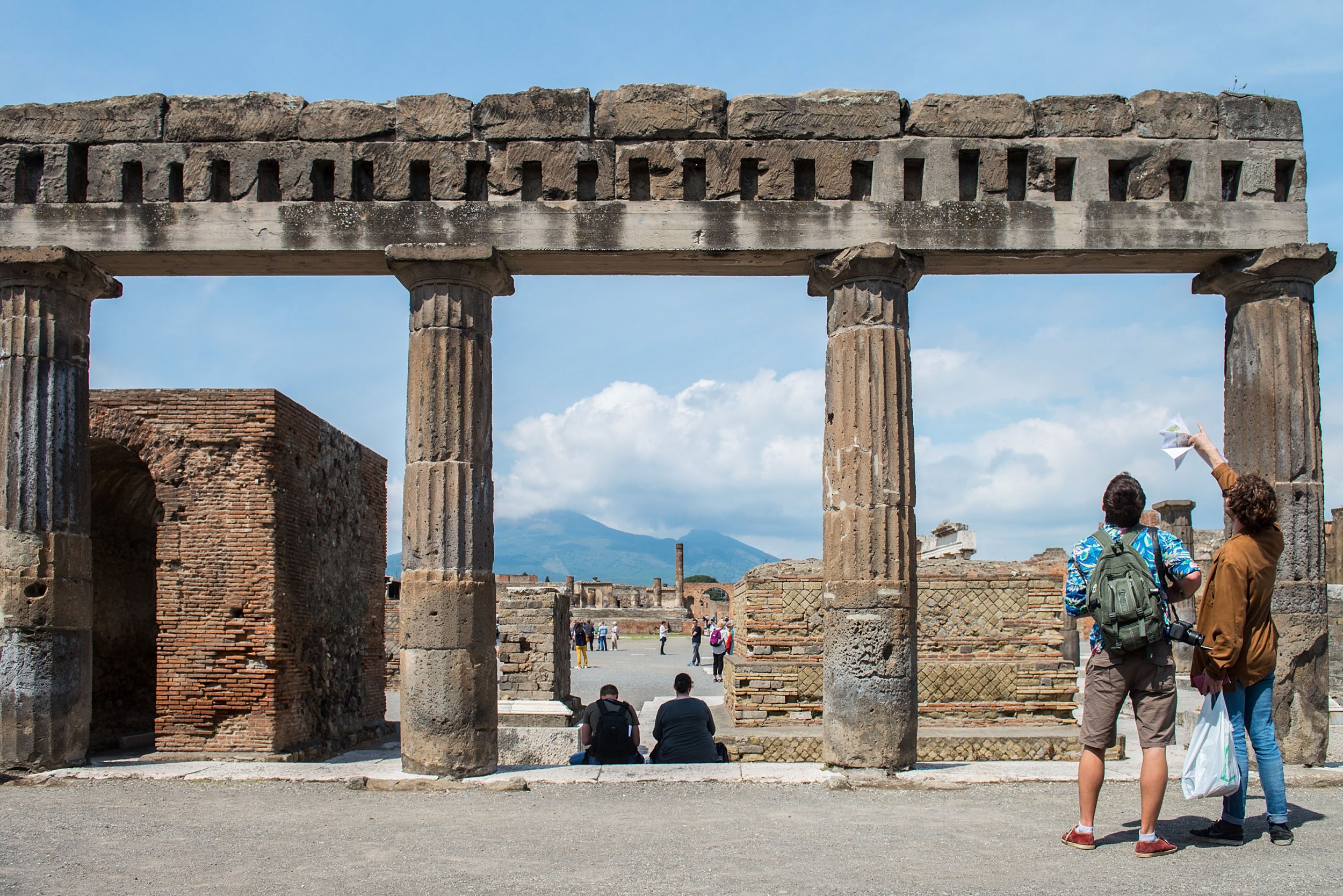
Of all ancient civilizations, the Romans may be most famous for their love of engineering, and particularly of plumbing. But the complex network of aqueducts, plentiful public fountains and even indoor private plumbing may have brought their own hazards, as a new report recently published in the journal Toxicology Letters suggests.
Scientists and historians alike have long been fascinated with Roman water pipes, particularly the possibility that the metals these pipes carried might have affected the health of Rome's residents and perhaps even contributed to the empire's downfall. It's an intriguing idea, especially when we see the modern impact of lead in cities like Flint, Michigan—but the evidence is a little trickier to corral.
So when the team of medical scientists behind the new report got the opportunity to analyze a fragment of water pipe from Pompeii, they jumped at the chance. In that sample, they found high levels of antimony. They believe the metal could have seeped out of the pipe and into the water at concentrations high enough to affect people's health, although there hasn't been much science done on precisely what that would entail.
Antimony definitely isn't the sort of thing you would seek out. Chronic exposure to antimony in drinking water can shorten life spans and interfere with blood sugar levels and cholesterol levels, and small doses can cause severe vomiting. That said, modern cases of ingesting antimony have never caused death.
Ironically, antimony is also commonly found in soil around volcanoes, including Vesuvius, the violent eruption of which buried Pompeii and nearby towns for archaeologists to find almost two millennia later. Pompeii's water came from the Sarno River, which draws on the watershed around Vesuvius—and the scientists think that could have been a second source of antimony in the drinking water.
Right now, the team has looked only at the single pipe fragment, which was excavated in 1875, raising some concerns about whether it has been identified accurately. The limited sample also means there's no way to confirm how widespread the antimony problem might have been in Pompeii or across Roman territories more broadly.
Previous studies have focused more on lead, both in Pompeii specifically and in other parts of Roman Italy more generally. They've also been careful to look at both pipes and the human remains themselves. That's important because there were multiple ways ancient Romans encountered lead—including using a compound of the metal as a sweetener.
And you thought added sugar was bad for you.
Uncommon Knowledge
Newsweek is committed to challenging conventional wisdom and finding connections in the search for common ground.
Newsweek is committed to challenging conventional wisdom and finding connections in the search for common ground.
About the writer
Meghan Bartels is a science journalist based in New York City who covers the science happening on the surface of ... Read more
To read how Newsweek uses AI as a newsroom tool, Click here.








